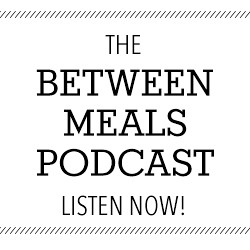This is the second post in a Hormone-Focused Series from Nutritional Therapy Practitioner Brynn D’Avello. I suggest reading the first post The First Step to Happy Hormones and then diving right into this one where we tackle Blood Sugar and Your Hormones!
How Blood Sugar Imbalance Affects Your Hormones
The number one principle of the Nutritional Therapy paradigm is, “Always address the foundations first.” So what exactly are The Foundations? The first and most important is a properly prepared, nutrient-dense diet. The other four foundations are digestion, blood sugar balance, fatty acid balance, mineral balance and hydration. When one or more foundations are weakened it leads to what we call consequences, which are usually the symptoms that clients are coming to us, or doctors, to help resolve. Issues like hormone imbalances, weak immune systems, and sluggish detoxification pathways. As Nutritional Therapy Practitioners we do not treat disease. It is our job to strengthen the weaknesses and remove the stressors. This will allow the body to correct the imbalance and bring optimal wellness back.
With hormone balance each of the foundations plays a role, but any attempt to normalize hormonal imbalance is futile until blood sugar issues are addressed. No ifs, ands or buts. In the last post about Happy Hormones we talked about how stress affects the adrenals and hormone production, and how these two glands handle our stress response, but that’s not their only job. In order to maintain proper blood sugar balance it takes the adrenals, the liver, and the pancreas working together in harmony to provide steady energy for the body. Chronic stress leads to elevated cortisol, which exhausts the adrenals. When the cortisol levels are elevated insulin receptors on cells do not respond adequately to insulin. This puts a strain on the pancreas to secrete more insulin, which leads to more stress on the adrenals, higher insulin levels and if this vicious cycle continues… to insulin resistance and possibly even diabetes. A daily roller coaster with dangerous consequences.
Our body’s innate intelligence constantly monitors the amount of glucose in our bloodstream to maintain balance. Too much or too little triggers the release of hormones to return levels to normal. A constant slow stream of glucose from unrefined, whole foods sources, entering into the blood stream in a controlled manner – this is the ultimate goal. Not the large dumps of sugar we see in our food culture. We are NOT designed to run on just carbohydrates. The body is designed to use a balance of unrefined carbohydrates (think vegetables, fruits and some whole, soaked/sprouted grains if you can tolerate them), along with good fats and quality proteins as the primary sources of fuel. Carbohydrates act like kindling in a fire; they are quick burning and work for a short time to get us bursts of energy, as needed. Inevitably we will need more, to keep the fire going for the long haul. When we exclusively are burning carbs/glucose we create a roller coaster with our blood sugar, with the highest or highs and the lowest of lows aka crashes or bonks! Healthy fats and proteins are the logs on the fire, providing a more sustained source of longer lasting, balanced energy, along with providing the body the necessary precursors to create healthy hormones.
Plant foods are not the best sources of protein and the protein they do contain is not easily digestible for the human gut. The best quality and easiest to digest proteins come from properly raised animal foods like meats, fish, eggs and raw or fermented dairy products. Protein malnutrition is a serious matter because the body cannot produce hormones, enzymes and neurotransmitters without useable protein.
The Thyroid
Let’s talk about the thyroid for a minute. This gland is one of the primary organs that regulate metabolism, and it is extremely sensitive to stress and stressors such as heavy metals, foreign substances, drugs (like aspirin) and food allergies. The two thyroid hormones that handle most of the work are T4 (Tyrosine + 4 iodine molecules) and T3 (Tyrosine + 3 iodine molecules). T4 is produced in the thyroid and is inactive until it is converted in the tissues to T3.
T4 regulates body temperature, cellular metabolism, growth & development, activity of the nervous system, breakdown of stored fat, and reducing blood cholesterol levels. T3 affects almost every organ of the body by acting as a modulator of cell functions. So what’s the connection to blood sugar regulation? It comes right back to the adrenals. During stress the adrenals prioritize overcoming the immediate stress, and downgrade the importance of other organ’s functions, like digestion, immune response and thyroid hormone production and distribution. These functions get put on hold or are slowed down until the stress is gone.
So What Can We Do to Address Blood Sugar Imbalance?
1. Stop The Sabotage!
Unless you want minimal to no results, it’s best to avoid adrenal stimulants until your blood sugar is balanced. This includes:
- Concentrated sugars of any kind
- Nicotine
- Caffeine
- Alcohol
- Allergenic foods
- Hydrogenated and partially hydrogenated fats
- Vegetable and seed oils
- Artificial sweeteners
- Over excercising
- Inadequate sleep
2. Stabilize Blood Glucose Levels
- Don’t skip breakfast. At least while you are working to stabilize blood sugar and are moving away from being exclusively a “sugar burner”. Forcing yourself to move through your day without any fuel at all, when your body is used to running on quick burning fuel, this is a recipe for disaster and major crashes plus causes unnecessary stress on the body. Inevitably you are forced to reach for more quick burning fuel and you perpetuate the problem. Consider starting your day with a solid breakfast loaded with healthy fats and proteins that will help you fuel your day properly with longer lasting fuel from the start to avoid the blood sugar roller coaster.
- Eat when you are hungry (don’t when you’re not).
- Choose healthy carbs (unrefined, preferably from fiber-rich vegetables) + good fats + high quality proteins
- Eat every 2-3 hours, as needed, to manage massive spikes and the big drops. Plan ahead with small balanced snacks like chia pudding, green apples with unsweetened quality nut butter, cheese and nuts, or veggies with tahini or hummus. But only eat them, if you need the fuel, be conscious of snacking out of boredom or habit.
- Snack on low-glycemic foods like nuts, seeds, hard-boiled eggs, grass-fed meat sticks, etc
- Avoid all juices (if you must have a fresh-pressed juice/smoothie, make it with at least 50-75% vegetables and add a fat and protein like your preferred milk, yogurt or avocado) Check out the Guide to Smarter Smoothies for tips on building a better smoothie.
3. Aerobic Exercise
- Do not over-do it
- Fast walk, yoga, light jogging
- Spend time in nature
4. Relax!
- Cooking
- Yoga
- Reading
- Tai Chi
- Meditation
- Infrared Sauna
- & any other activities that help reduce your stress and allow you to relax
I think as we go through this hormone series together you will see a consistent theme. Eat well, practice self-care habits, and minimize the stress on your body.
About Brynn D’Avello:
Southern roots have given my family a love of sitting down to eat good home cooked meals together. Flavor was never in short supply, although as a young child processed food was. I went to school with a hand packed lunch in my personalized lunchbox every day. As I moved into junior high, I began making poor food choices as the “SAD” diet (Standard American Diet) became convenient and ever present. Diagnosed with Grave’s Disease, an autoimmune thyroid disorder, at 20 I struggled through poor health, daily medications, and eventually through a high-risk pregnancy. My son was diagnosed with Autism and Tourette’s Syndrome at 6-years-old.
Realizing that what we eat is foundational to optimal health I began researching, studying and cooking real food. I was led to the Nutritional Therapy Association to become a certified Nutritional Therapy Practitioner. I followed that by becoming a certified Epidemic Answers Health Coach to learn more about the new childhood epidemics: Autism, ADD/ADHD, asthma and allergies. I focus on growing families with preconception support, fertility enhancement, pregnancy & post-partum support and first foods for babies, and working with kids on the spectrum to optimize their wellness.
Website: https://www.thymetoturnip.com
Instagram: https://www.instagram.com/thyme_to_turnip/












